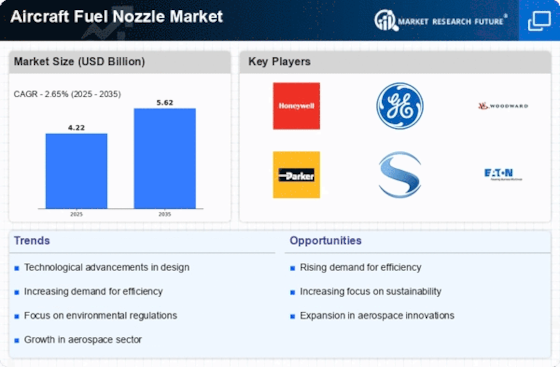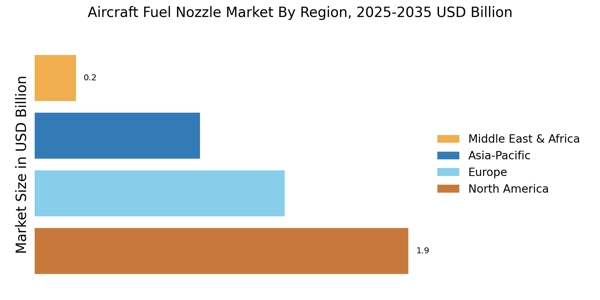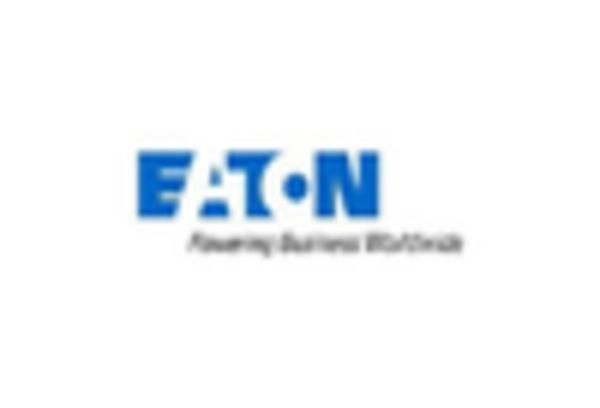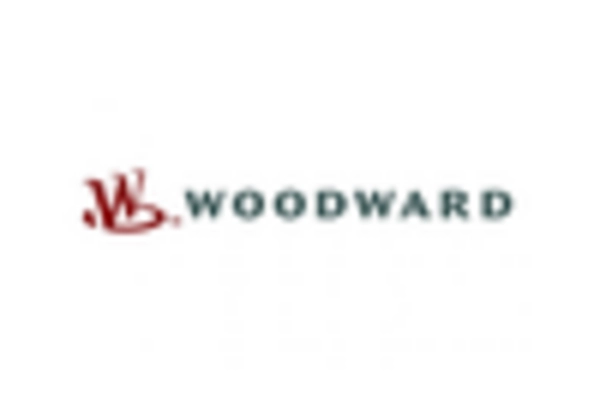Increased Air Travel Demand
The aircraft fuel nozzle Market is poised for growth due to the increasing demand for air travel. As economies recover and consumer confidence rises, the number of passengers traveling by air is expected to surge. This uptick in air travel necessitates the expansion of airline fleets, which in turn drives the demand for fuel-efficient aircraft. Consequently, manufacturers are focusing on developing advanced fuel nozzles that enhance engine performance and fuel efficiency. According to industry forecasts, the global air passenger traffic is projected to grow by over 4% annually in the coming years. This growth will likely stimulate investments in new aircraft and retrofitting existing ones with state-of-the-art fuel nozzle technologies, thereby propelling the Aircraft Fuel Nozzle Market.
Regulatory Compliance and Standards
Regulatory compliance is a critical driver in the Aircraft Fuel Nozzle Market. Governments and aviation authorities are implementing stringent regulations aimed at reducing emissions and improving fuel efficiency. These regulations compel manufacturers to innovate and produce fuel nozzles that meet or exceed these standards. For example, the International Civil Aviation Organization (ICAO) has set ambitious targets for reducing greenhouse gas emissions from aviation. As a result, manufacturers are investing in research and development to create nozzles that optimize fuel delivery and minimize waste. This regulatory landscape not only influences product design but also shapes market dynamics, as companies that can swiftly adapt to these changes are likely to gain a competitive edge. The ongoing evolution of regulations will continue to drive innovation within the Aircraft Fuel Nozzle Market.
Emerging Markets and Economic Growth
Emerging markets are becoming increasingly influential in the Aircraft Fuel Nozzle Market. As countries in Asia, Africa, and Latin America experience economic growth, there is a corresponding rise in air travel and aircraft demand. This trend is prompting both established and new airlines to invest in modern fleets equipped with advanced fuel nozzles. The expansion of low-cost carriers in these regions is particularly noteworthy, as they often prioritize fuel efficiency to maintain competitive pricing. Furthermore, government initiatives to improve aviation infrastructure are likely to support this growth. The market for aircraft fuel nozzles in these emerging economies is expected to witness robust growth, driven by the need for efficient and reliable fuel delivery systems.
Sustainability Initiatives in Aviation
Sustainability initiatives are becoming a driving force in the Aircraft Fuel Nozzle Market. With growing concerns over climate change and environmental impact, the aviation sector is under pressure to adopt greener technologies. Fuel nozzles that support sustainable aviation fuels (SAFs) are gaining traction, as they enable aircraft to operate with lower carbon emissions. The shift towards SAFs is supported by various governments and organizations, which are investing in research and development to enhance the compatibility of existing fuel systems. This transition is likely to create new opportunities for manufacturers of fuel nozzles, as they adapt their products to meet the evolving needs of the industry. The market for fuel nozzles designed for SAFs is anticipated to expand significantly, reflecting the broader trend towards sustainability in aviation.
Technological Advancements in Fuel Efficiency
The Aircraft Fuel Nozzle Market is experiencing a notable shift due to advancements in fuel efficiency technologies. Innovations such as advanced materials and precision engineering are enhancing the performance of fuel nozzles, leading to reduced fuel consumption and emissions. For instance, the integration of 3D printing technology allows for the production of complex nozzle designs that optimize fuel atomization. This not only improves combustion efficiency but also contributes to overall aircraft performance. As airlines and manufacturers increasingly prioritize fuel efficiency to meet regulatory standards and reduce operational costs, the demand for advanced fuel nozzles is expected to rise. The market is projected to grow at a compound annual growth rate of approximately 5% over the next few years, driven by these technological advancements.

















